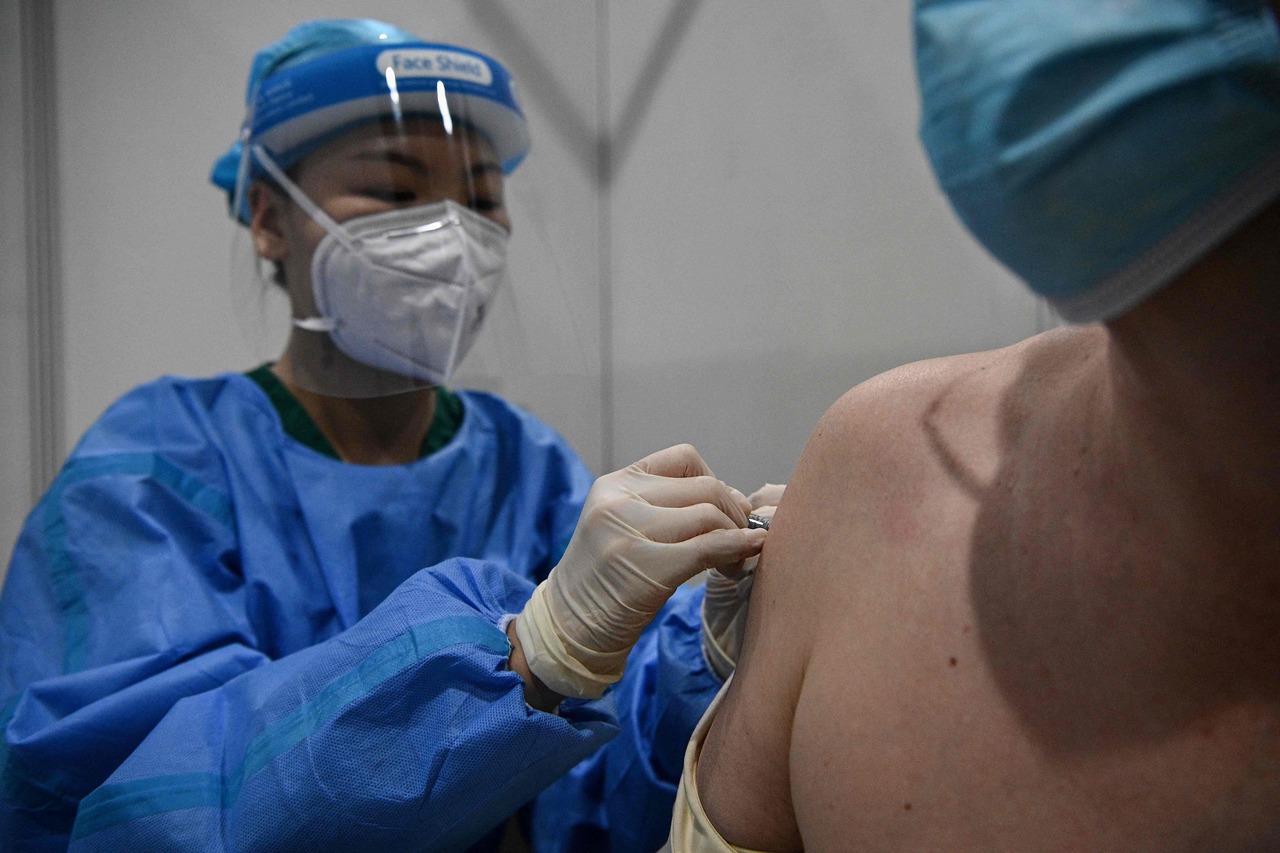News analysis
Muted response in China to WHO's approval of Sinopharm Covid-19 vaccine
Sign up now: Get insights on Asia's fast-moving developments

The WHO decision means the Sinopharm vaccine can now be added to Covax.
PHOTO: AFP
BEIJING - The response in China was muted after the World Health Organisation (WHO) approved the home-grown Sinopharm Covid-19 vaccine for emergency use last week, a move that paved the way for Beijing to step up its vaccine diplomacy.
The reason is twofold: Beijing is hoping to play down accusations of using vaccine doses to cut deals, and, second, it may not yet be prepared to recognise all the other vaccines on WHO's emergency usage list.
The Sinopharm doses now join Pfizer, AstraZeneca, Johnson & Johnson and Moderna on WHO's Emergency Use Listing (EUL). Another Chinese vaccine, Sinovac, is still under review.
After the announcement late on Friday (May 7), most Chinese language media simply reported the news based on the WHO press release, a stark departure from the usual wall-to-wall coverage whenever dealing with vaccine-related issues.
On the flagship evening news programme, it was almost the last item in the bulletin and lasted barely over a minute.
The domestic English language media hailed the move as a boost in the global fight against Covid-19.
Validation from the world health body is testament to the safety of China's vaccines, wrote the official China Daily in an editorial.
"(The approval) has frustrated those who trumpet that the US is on track to overtake China in the fight against the pandemic," wrote the nationalistic tabloid Global Times in an editorial on Saturday.
The WHO decision means that the Sinopharm vaccine can now be added to Covax, a programme administered by the agency to ensure equitable access to vaccines. Beijing has promised 10 million doses to meet the needs of developing countries and is in "close communication" with WHO to uphold its commitment, foreign ministry spokesman Hua Chunying said on Monday.
China's leaders have repeatedly described vaccines as a global public good and Beijing has strongly rejected accusations of "vaccine diplomacy". Instead, it has accused the West of "vaccine nationalism".
Still, there is the issue of mutual recognition of vaccines. China has still not approved or recognised any foreign vaccine, while Chinese vaccines are also not widely available in the West yet.
Chinese officials have indicated that they are prepared to approve the Pfizer vaccine for use in the country by end-July, after the deadline of an ambitious nationwide programme to inoculate 60 per cent of the population passes by end June.
After several speed bumps along the way - mostly as a result of hesitancy from people who have grown complacent after the government's control of the pandemic - some 324 million doses had been administered as at Sunday.
Ultimately, though, the WHO approval is largely a matter of procedure: Even without the EUL, China has already agreed to provide hundreds of millions of doses of its own vaccines to over 60 countries and territories, whether through export deals or donations.
Many are developing countries which do not have access to vaccines produced in the West, which have also faced export backlogs.
The Chinese vaccines can be stored between 2 and 8 deg C, making them more suitable for countries with fewer resources. In contrast, the Pfizer and Moderna doses have to be stored at sub-zero temperatures, requiring special equipment.
"(China and Russia) are also seeking to leverage resentment against Western countries, which have secured access to more than half of the global supply of vaccines this year and are prioritising immunising their own populations," wrote the Economist Intelligence Unit global forecasting director Agathe Demarais in a report about vaccine diplomacy by Beijing and Moscow.
Yet, vaccine deliveries abroad have been lopsided. Countries like Indonesia and Chile have secured millions of doses, while others, especially in sub-Saharan Africa will receive only a few thousand.
The EIU report dismissed this as more "a public relations exercise than a genuine attempt to fill an urgent need".
"This dynamic could shift when Western countries start exporting vaccines in large quantities," the EIU added.


